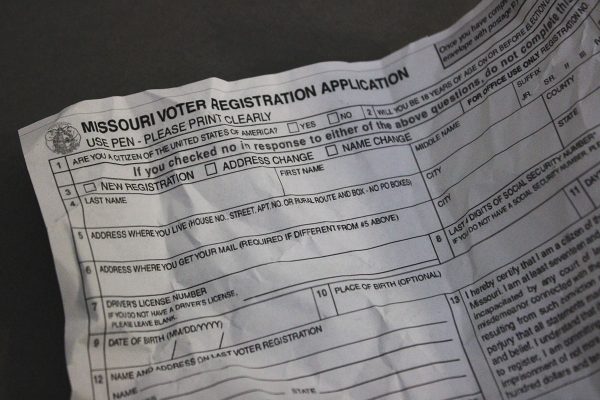Music aides therapy, promotes stress relief, relaxation
March 7, 2022
A 2019 study by professor of psychology Daniel Müllensiefen at Goldsmiths College, University of London found 74% of those surveyed listened to music to reduce stress and were successful in doing so. 12,000 people over the span of 12 countries took the survey. The type of music also played a part in its ability to alleviate stress, with 52% of listeners stating they achieved peak happiness while hearing their favorite song.
For junior Kazimir Pushechnikova, the genre of music determines how soothing it is. They said their preference is highly dependent on their state of mind and mood, which changes based on the situation.
“I listen to a lot of different stuff—I mean I have 40-plus Spotify playlists so one can imagine,” Pushechnikova said. “I have this playlist called ‘Starship Troopers Effect’ that’s just military [and] history-related stuff like Sabaton and Corb Lund, but then I also have a playlist that reminds me of a given person that is mostly, for lack of a better word, much more wholesome.”
The same study stated music may change a person’s mood unpredictably. 40% of those surveyed said they abruptly cried while playing a song, while 36% said they suddenly started laughing. Junior Muzzammil Mobolaji Salau said his mood rarely impacts the type of music he listens to.
“I enjoy listening to electro swing, more specifically, electro swing from Parov Stelar,” Salau said. “I tend to not care which music I listen to regardless of my situation. Any music is music [to] my ears.”
I think it’s because [music] helps me zone out and drown out the noises around me and my own thoughts that may be distracting. Along with that, positive direct associations with certain songs or genres can help me relax and feel nice too.
— Kazimir Pushechnikova
The style and tempo of a song does affect the human body, both physically and mentally, according to an article from the University of Nevada, Reno. On one hand, faster melodies can make you “feel more alert and concentrate better,” and upbeat melodies may help people “feel more optimistic and positive about life.” Slower music, on the other hand, assists in “making you feel soothed while releasing the stress of the day.”
This stress relief is in relation with the production of alpha brain waves, according to the National Center for Biotechnology Information. When a person is calm and at ease, they create brain waves on the middle of the spectrum, called alpha waves. These waves have a frequency of around 8 to 12 hertz and occur when the brain is completely relaxed. The same article from the University of Nevada, Reno, stated the brain synchronizes with music that has a tempo of about 60 beats per minute, which in turn causes alpha wave frequencies and an overall calm state of nature.
In addition to its impact on brain waves, Emily Pivovarnik, a music therapist at several hospitals at the University of Missouri—Columbia (MU), said music is known to release dopamine within the brain, and assists with memory and recognition. This, she said, along with other similar health benefits of listening to songs, is the reason music therapy is effective and has minimal side effects.
“Music therapy is so wonderful because many patients already have a relationship with music, and many would agree that music is helpful to them during difficult times,” Pivovarnik said. “By using this connection as a vehicle of change in the therapeutic process, we are able to address physical, cognitive, social-emotional and language goals.”
Because Pivovarnik’s job is at the MU Children’s Hospital and the Neonatal Intensive Care Unit (NICU) at the MU Healthcare Women’s Hospital, she largely engages in pediatric music therapy.
She said on a daily basis, she might do anything from writing songs to playing instruments, all to help the patients process their feelings.
“In one room, one may walk past and see me and a kiddo banging on drums and jamming out, while in the NICU you may see me holding a baby and humming softly,” Pivovarnik said. “I always try to follow our kids with chronic diagnoses such as cancer, sickle cell, cystic fibrosis, etc. In these sessions, we may use music instruction to help increase coping skills.”
Amy Robertson, director of music therapy at the University of Missouri—Kansas City Conservatory, said in addition to songwriting, she also does lyric analysis of pre-existing songs with her patients. She said her therapy sessions are often structured to develop with the patient’s diagnosis, music preferences and activities they are partial to. She then assesses the client based on their reactions and emotions.
I think [music therapy] can [be improved] by more music therapists understanding research and engaging in research to help propel our field forward. Because that’s what a lot of healthcare clinicians rely on—our research and making sure that what we’re doing is effective.
— Amy Robertson, director of music therapy at the University of Missouri—Kansas City Conservatory
“I was a medical musical therapist for a long time, and I worked with a lot of patients with cancer, and so I had a lot of patients that were struggling with coping and depression,” Robertson said. “And so I might start off with one of their favorite songs or a song that matches their mood. Then, I might do a lyric analysis, discussing those lyrics. And then we can slowly work on coping skills, often involving songwriting.”
Robertson said music therapy’s ability to cater to an individual’s taste is part of the reason it is preferred by many of her patients. She said it is also less nerve-wracking for patients in terms of communicating with their therapists because they can express themselves with music as a medium. Based on information collected through research, Robertson found music therapy sessions—both group and individual—are often the most attended.
“I think it’s that piece where it’s not as invasive as talk therapy,” Robertson said. “I can go in, and I can see a patient that I’ve never seen before, and I can play them their favorite music and they can connect with that music. Then through songwriting or discussing of lyrics we can talk about what’s going on in their lives, or what they’re dealing with a little bit easier when we’re doing it through the music.”
Robertson also said as the demand for music therapy increases, physicians need to spend extra time figuring out more activities that might appeal to patients. If the field is in a period of growth, it may be subject to change and adaptation as well.
“I think [music therapy] can [be improved] by more music therapists understanding research and engaging in research to help propel our field forward,” Robertson said. “Because that’s what a lot of healthcare clinicians rely on—our research and making sure that what we’re doing is effective.”
For now, listening to music is a primary tool to unwind—for both music therapists working with clients and high school students attempting to relieve tension.
“I think it’s because [music] helps me zone out and drown out the noises around me and my own thoughts that may be distracting,” Pushechnikova said. “Along with that, positive direct associations with certain songs or genres can help me relax and feel nice too.”
Does music help you relax? Let us know in the comments below.





























































































